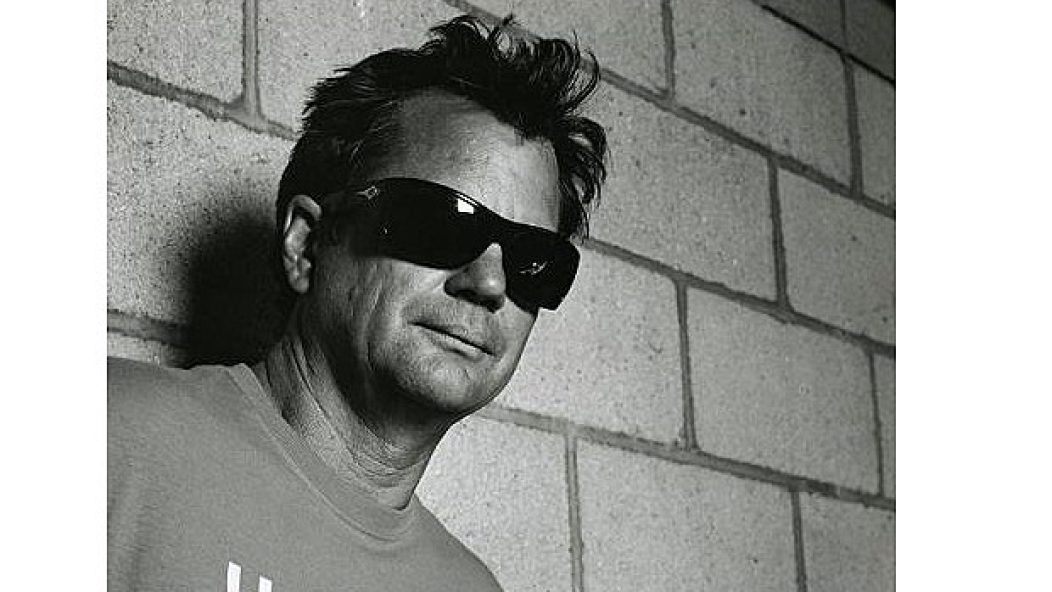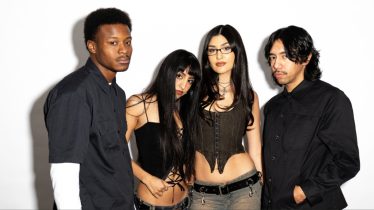
Exclusive Interview: Warped Tour founder Kevin Lyman on safety concerns for traveling music fests
(Photo: Lisa Johnson)
This summer was truly terrifying for some music festival attendees, with multiple instances of stages collapsing amid bouts of inclement weather. Since these unfortunate occurrences seem to be on the rise (the Indiana State Fair, Ottawa Bluesfest, Tulsa Oklahoma's Brady District Block Party and the Pukkelpop Festival in Belgium), AP tapped Warped Tour founder KEVIN LYMAN for his viewpoint on the issues, and the secrets to his success in avoiding such outcomes, despite several close calls.
What's the key to doing outdoor festivals safely?
Overall, you have to look at it [as] whatever you're doing at a concert, you're still building a temporary structure, and you can see what Mother Nature can do to buildings that have been there 50 years. Our next president seems to think there’s no such thing as global warming, but between the 17 Warped Tours and four Lollapaloozas I’ve done—21 summers in a row—I can say that storms seem to be getting much more intense and seem to come out of nowhere. There are also so many more festivals now than even five years ago: There's a festival a week. Everyone's putting these things up, so maybe it's the law of averages catching up.
[Local staging companies] have structural engineers, and there are maybe some companies that are safer than others, but there’s a certain way to put up the stage. It's in the interest in the company to make their stages as safe as possible. But when you have winds of 70 miles per hour, maybe it's the law of averages.
People ask me, “What's your summer like,” and I say it's looking at five-day weather forecasts, and then hourly forecasts. Every day, that's my greatest fear and worry. You have to be smart enough not to overreact on every show and shut them down; you're trying to balance that. My biggest thing is lightning. There were shows this summer where I was saying, “I've been doing this a long time. I'm watching the clouds… They're going that way, there's some lightning over there… We can keep going.” I had one show where they said, “Okay Kevin, if you keep it going, it's all on you,” and I said, “Fine.” Storms went around us, we had a good end to the show, and 10,000 kids had a good day.
How do you make that call?
It's ultimately me: If I feel there's danger and it outweighs everything. I think there's that gut instinct. It's no business for the faint of heart. You've got to be willing to go out there and do it, but also smart enough to tell the kids. Then you have people who don't want to go anywhere. You stop a show and they're like, “Fuck you,” because they're so used to lightning every other day. You tell them to take shelter, and they just stand in the parking lot and throw mud at you. Everyone knows I'm from California, and they say, “Fuck you, you pussy from California. We get this every day.”
Everyone always talks about that one Warped Tour in Cleveland a while back.
That was gnarly. There was no radar. That storm was forming right there over Cleveland. I had to make those calls: shut things down, go under the roof. My wife broke her collarbone; water came up through a sewer and knocked her into a fence. It was gnarly, and I'm sitting there with all these kids with a bullhorn, trying to keep them calm.
Then 45 minutes later, we were back up and running, but there was one point where, if the wind had kept up for another five or 10 minutes, that whole roof would have been lost on that venue, and I was going, “People are going to die here.” I'm onstage, because one side of the roof started ripping up, and one of the video screens broke, and I was going, “If this doesn't end, people are going to die.” I still look at that and go, “Is there anything else we could have done?” But not really, because it just came up so quick and started building and going and going. The safest place, I thought, was under the roof, and it was; but then, that roof could have gone.
What do you do in terms of precautions?
You pull permits, you have engineering specs, you ground the stages and make sure they're grounded for lightning strikes. You do all those precautions, you bring rain gear. We have a lot of tricks to make those stages work.
What are some of those tricks?
Channelling water with tarps and things. As soon as there's lightning, it's like, “Okay, gotta stop the show and get as many of the kids as possible to a better place.” We say, “Just go to your cars, we'll let you back in,” or if we have a protective space, send them there. We always have a contingency space.
How much depends upon the local engineers?
Staging companies have their engineering specs stamped. Building inspectors come out and inspect most stages, especially the big ones. Ours are very fixed structures because they're like a truck that opens up, so there's not a lot of moving pieces on them. They've all been signed off—very few people are just throwing stages up.
You have to make the decision if the stage is unsafe. I had one of my Throwdown shows this year cancelled, because it was not a safe structure for the bands to be on. [Meteorologists] were calling for a big storm—there was a tropical storm coming—and there were holes in the roof and on the floor. It wouldn't support the gear.
Are there any places in the country that have more safety trouble than others?
The Midwest has those big crazy storms, but it can happen anywhere. In the Midwest, you see those big storms come up out of nowhere and move so quickly. If you look at where most of these problems with the stages have been, it's right up through that swath that's called Tornado Alley. There are continuous storms there all summer.
How helpful are the weather forecasts?
I think you can look at the forecasts and prepare, but it's still so hit and miss. You have to be ready and on it all the time. When they say [there’s a] 20 percent chance of thunderstorms, they can be 20 miles below you and miss you. We had storms this summer that were 40 miles below you. In Indianapolis, we barely got a trickle of rain, and 40 miles south of there, homes were blown down.
What is it about lightning that's so concerning?
It's so random and so deadly. You can ground everything, but it can still be so… It scares the shit out of me. I hate having to be the guy standing out in the middle of it all the time.
How bad does it have to be for you to decide to shut down the show?
When lightning gets within a couple of miles. I had a storm a couple of years ago with 3OH!3 playing and I knew it was coming, and their crowd was there. It was in Denver, and I was like, “Okay guys, sing fast, speed it up,” and then I said, “Okay, one more song.” I got onstage and told everyone, “Head out to your cars, the storm's going to be here.” We literally got the last person heading out the gate, and then we got wiped out by hail in the middle of August.
How many times have you cancelled shows due to weather?
In the whole history of Warped Tour, I think we've cancelled three times and rescheduled; once in New York and twice in Houston. In Houston, the rains come up and they get tropical weather that comes off the Gulf sometimes, and we had a date we could postpone to, and that was the best thing to do. One time in Houston was the right call, and we were able to move it to an indoor/outdoor setting. The other time it was pouring so hard, you couldn't even see 50 feet in front of you. They said it would be like that all day, but by the time doors would have opened, it was clear. That was the first day of the tour, and everyone would have had their equipment destroyed.
If this continues to increase, is there anything you can do to be better prepared in the future?
Get a crystal ball? If you look at Warped Tour, it's been an average of 45 shows for the past 18 years, so I think we work really hard for the safety of the kids. It doesn't eliminate problems, like kids getting hurt, but we know we're going out there and doing the best we possibly can.
Do you think fans will be more leery with a rise in this sort of stuff?
No. People have short memories. alt







